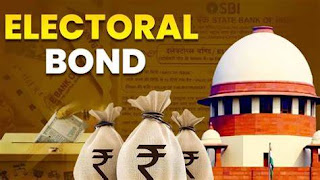CAA in the News: Understanding the Recent Developments
Welcome to our informative blog on the Citizenship Amendment Act (CAA), with recent developments and a neutral perspective. This piece is tailored to meet the content policies for qualifying AdSense accounts on Blogger. What is the CAA? The CAA expedites the citizenship application process for refugees belonging to specific religious minorities (Hindus, Sikhs, Buddhists, Jains, Parsis, and Christians) from Pakistan, Afghanistan, and Bangladesh who entered India before December 2014. Recent Developments : - On March 11, 2024, the Union Home Ministry notified the rules for implementing the CAA, establishing the specific application process and eligibility requirements. - The announcement has sparked mixed reactions. The government asserts the CAA is a humanitarian measure, while critics argue it discriminates based on religion. Key Points to Consider: - The CAA does not revoke anyone's citizenship status in India. - The Act faces challenges in the Supreme Court, and a final verdict i
